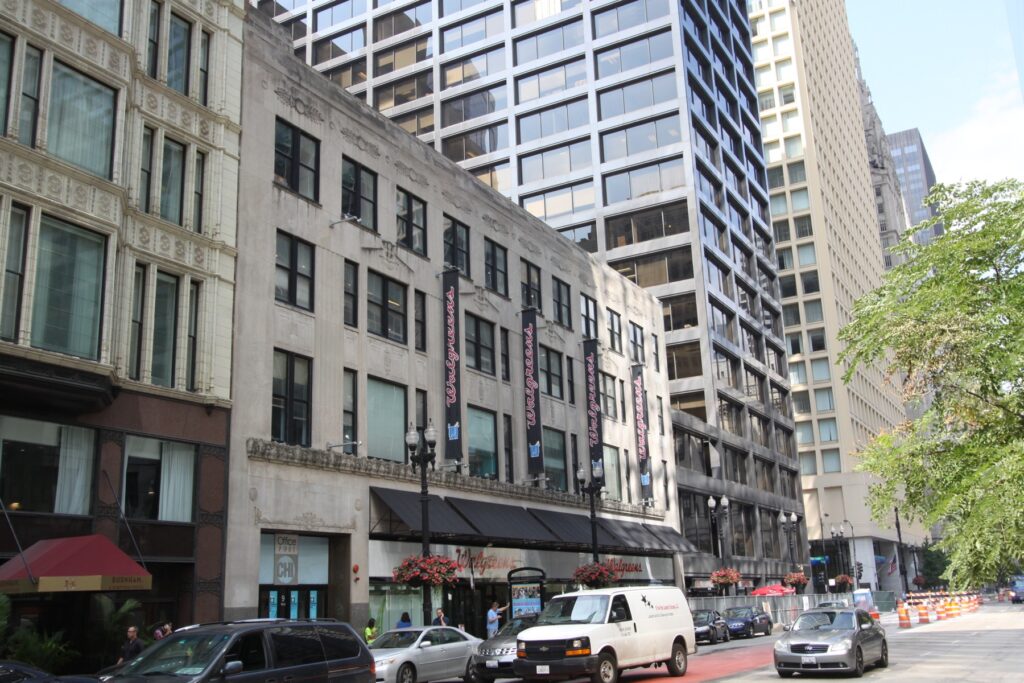Welcome to the topic “Commercial Real Estate Trends in Chicago”
The commercial real estate market is ever-changing, and the properties that yield the best results for owners, tenants and investors are those that adapt to trends as they emerge.
Keeping tabs on current conditions and anticipating future needs is key to staying ahead of the game when it comes to property management and negotiating better deals.
Throughout the last several years, Chicago has led the way in recovery efforts among major US cities, being one of the strongest cities focused on bolstering its commercial real estate market.
As in every city, the commercial real estate landscape changes from one area to another, and trends in one part of town might not be applicable to another.

For example, office buildings in River North might see an uptick in demand for co-working spaces due to their convenient proximity to restaurants, cafes and other amenities.
While in contrast, office buildings just outside of downtown may see a surge in demand for larger spaces suitable for organizations that have outgrown smaller offices.
That being said, there are some universal principles that apply across the board no matter where you’re looking at investing in commercial property.
Below are several commercial real estate trends you should keep an eye on if you’re interested in making smart investment decisions when it comes to your next commercial space:
Under Construction Commercial Real Estate in Chicago
New development projects are evenly distributed throughout Chicago’s commercial real estate market sectors. The statistics below show that each industry is adding around or over 1% of inventory to their respective markets.
The retail market in Chicago is adding less than half of a percent of the stock, with new building projects in the area currently adding 0.2 percent of inventory. This is likely due to the rise in e-commerce and the need for more warehouse space for on-demand delivery.
Chicago as a ‘Gateway’ City
Chicago is the third-most populous city in the United States.
Along with Los Angeles, New York City, and San Francisco, Chicago’s retail real estate market is a perennial competitor for “best CRE markets” nationwide.
While there are emerging markets attracting investment and competing with more established markets around the country, Chicago remains a solid investment opportunity for business owners looking to keep a physical footprint in the market.
Chicago and other “gateway” real estate markets are part of a select set of U.S. cities with high liquidity, substantial economies, prominent culture, and global brand awareness.
Chicago has the third busiest airport in the country and serves as a strategic location between the prominent ‘gateway’ cities of New York and San Francisco.
Chicago is also 39% less expensive than San Francisco and 52% less costly than New York City.
With Chicago’s geographic location connecting East and West, and with its relatively lower cost of real estate, Chicago triumphs as a more cost-effective and convenient location to open an office headquarters.

More Partnerships Between Retail and Commercial Real Estate
As more organizations adopt a distributed work model, retail real estate and commercial real estate will become increasingly intertwined; providing additional benefits to tenant and their employees.
Food, beverage and fitness-related industries are already moving into more office buildings, bringing an added layer of activity and convenience to the workspace.
As more companies transition back to the office, it is becoming necessary for the company workplace to have better access and availability to more amenities for employee health and wellness.
For example, a medical spa that provides luxury wellness services may want to base itself in a building with an onsite restaurant or boutique – that way the overall environment of the building fits the needs of it’s clientele.
On the other hand, a prominent accounting firm may be better positioned to base itself in a building with an onsite fitness facility that can help its employees stay active during their downtime.
Or a law firm may want to be located in an office building with a restaurant so its employees can grab a quick bite to eat during lunch without having to travel outside of the building.
The options for commercial and retail spaces are endless and the right combination of properties and tenants is available to suit a variety of needs.
Office Buildings Will Become Smarter
As the Internet of Things (IoT) evolves, it’s not just home appliances that are becoming smarter — office buildings are, too.
The commercial real estate sector has been relatively slower to adapt to new technologies, partly because many commercial buildings are older and Landlords want to keep the integrity of the original design.
However, the wave of technology is overwhelming and is subsequently forcing industry change for the better.
For example, office buildings have begun installing built-in sensors which can help to track energy use within a space and pinpoint inefficiencies; helping tenants to better manage their energy consumption and carbon emissions.
As new buildings come online and existing buildings undergo retrofits, commercial buildings are gaining increased function that benefits both tenants and Landlords.
Potential Impacts of Higher Inflation and Interest Rates on CRE M&A Activity
The potential for higher inflation and interest rate increases in 2022 has generated significant discussion and debate among economists, market analysts, and investors.
The impact of these changes on real estate values has been a particular focus of attention, and something all business owners should pay attention to in the coming months.
While it is difficult to predict the exact impact that rising inflation and interest rates will have on commercial real estate (CRE) markets, it is possible to analyze the potential effects of these changes on CRE M&A activity.
In general, higher inflation and interest rates will lead to increased costs for buyers and sellers in CRE transactions. Meaning that having expert and seasoned negotiators on your team is more important than ever.
As rising interest rates increase the cost of borrowing money for purchases and refinancing, inflation will reduce the purchasing power of buyers and increase the costs of improvements and operating expenses.
So making sure your real estate brokerage team can find you the best property for the most cost effective price is going to be vital in the coming months. You want to ensure that every dollar spent on your next commercial property is working for your business.

Realignment for Greater Value-generation – Keeping Up with the Commercial Real Estate Trends in Chicago
The workforce and work models of U.S. based companies have changed significantly.
Therefore, business owners looking to invest in commercial real estate properties have been forced to re-evaluate the space, function, and personnel needs of their company prior to buying, selling, or leasing properties.
These re-evaluations allow for significant opportunities in adding value to their business by strategically realigning their business operations and real estate needs with the current market environment
One way this can be done is by determining whether to buy, sell, or lease properties in secondary markets (districts adjacent to high traffic and commerce areas) or primary markets (high traffic and commerce areas).
Determining where there is greater demand and deals for CRE space will be instrumental in negotiations and terms agreements for any transaction.
Another way to accomplish strategic realignment is to take advantage of the opportunities presented by the current market conditions by acquiring undervalued properties at bargain prices due to the pandemic-induced downturn.
As markets remain vastly cyclical, the bargain properties that companies acquire now will only appreciate in value later on, and also allow for better terms negotiations during the transaction.
The current CRE market, in Chicago, and across the U.S. is full of opportunities for savvy business owners and investors with the right commercial brokerage team on their side.
Let Tenant Advisory Group be that team for you. Contact our brokers today.
Have any questions regarding the topic “Industrial Properties and the Effect of E-commerce” feel free to comment below.
Also Read: The Massive Effect of E-commerce on Industrial Real Estate
TAGS